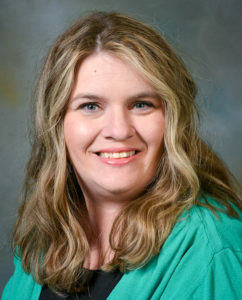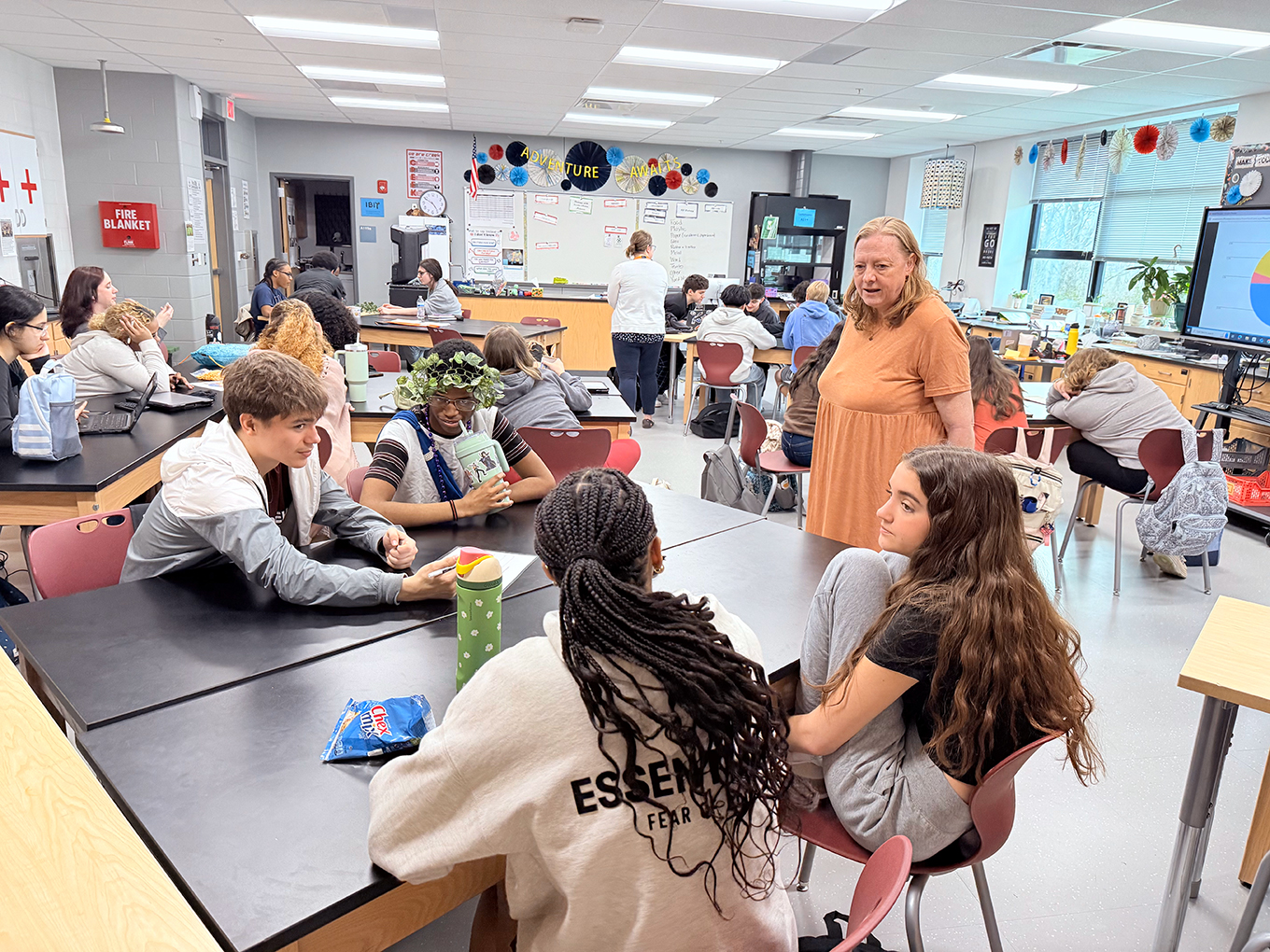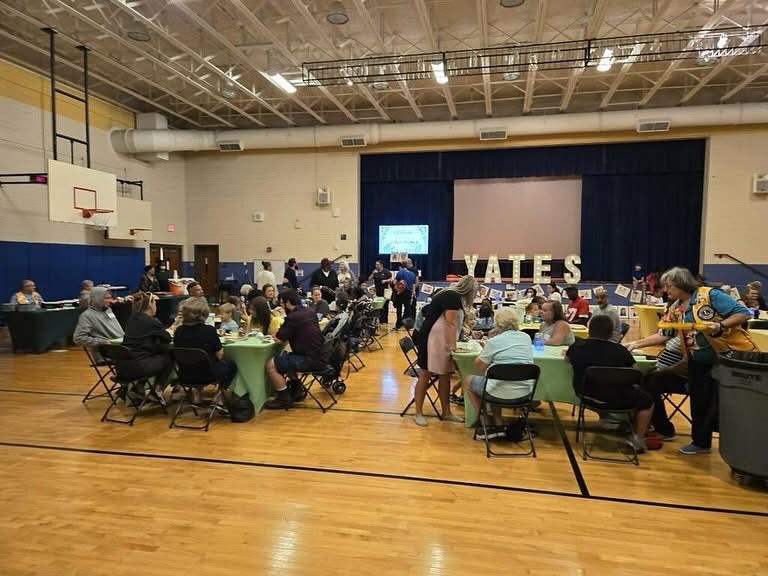
Stacey Russell
Nationally, the role of school counselors has significantly evolved over the last several years. In addition to helping students choose classes and prepare for college or career, we are charged with building programs to help develop the whole child and build students’ capacity to be resilient, emotionally healthy citizens of the world.
In an effort to clarify the modern role of counselors in schools, the American School Counselor Association no longer uses the term “guidance counselor.” We are school counselors. I’ve been asked the question “Aren’t they the same thing?” My answer is always no.
Do we guide children? Absolutely, but so do teachers, parents and principals. School counselors are trained in additional ways to help prepare students for life.
Today’s school counselors have master’s degrees in counseling and our coursework is similar to that of a licensed professional clinical counselor. It includes classes on counseling theory and techniques, as well as counseling special populations (children, adolescents). Several counseling programs also include classes aimed at interpreting school data to build a comprehensive school counseling program.
We help students develop social and emotional skills that are critical to their future success. We are trained to use data to create programs to impact student achievement, and career and social-emotional outcomes. Research shows that when school counselors are able to create and fully implement a comprehensive school counseling program grounded in data, student outcomes increase.
What is a comprehensive school counseling program?
Certified school counselors are trained to develop, implement and evaluate a comprehensive school counseling program. We are trained to use school-level data – such as School Report Card data, discipline rates, attendance rates, graduation rates and enrollment in AP class rates – to create a school counseling program that meets the needs of the school and removes barriers to success for all students.
School counselors conduct needs assessments with key stakeholders, such as students, parents, teachers and community members. This information is combined with the academic and behavioral data to identify three to five goals for which school counselors create targeted interventions. School counselors may then choose evidence-based classroom guidance, small group and individual interventions to meet the goals and measure their effectiveness through pre/post assessments and evaluations. For example, after looking at school-level data, Williamstown Elementary (Williamstown Independent) counselors created the following goal: 2nd-grade students who participate in the Ready for Success small group Tier 2 intervention will increase MAP scores by 10 percent above normal expected growth.
What does the research say?
Several studies have been conducted on the value of school counselors and the impact they can have on student outcomes if they are able to focus on implementing a comprehensive school counseling program. One study conducted in Utah suggested that when school counselors use data to decide which issues to address, student achievement in math and reading increases, suspension rates decrease, fewer students report being bullied or teased, and graduation rates in vocational programs increase. Another study from Nebraska showed when school counselors use differentiated delivery systems – such as classroom guidance lessons, small groups and individual sessions – suspension and discipline rates decrease, attendance rates increase, and achievement rates in math and reading (as measured by state testing) increase.
Perhaps most interestingly, economists Scott Carrell and Mark Hoekstra conducted a study to determine the impact school counselors have on student achievement and whether they were a cost-effective way to increase student achievement. Their results indicate school counselors “cause an economically and statistically significant increase in achievement, particularly for boys.” They go on to suggest that hiring additional school counselors “may be an effective alternative to other educational policies aimed at increasing academic achievement.”
Are schools in Kentucky already doing this?
Absolutely! Campbell County Schools is a model district when it comes to using school counselors effectively. Every school in the district is certified by the American School Counselor Association (ASCA) as a RAMP school (recognized as an ASCA model program). Campbell County High School has been recognized as a Kentucky School of Distinction and by U.S. News and World Report as one of the best public high schools in the nation. In the past couple of years, each of the elementary schools has been recognized as Distinguished, with Cline Elementary earning a National Blue Ribbon recognition from the U.S. Department of Education.
Other schools in Kentucky with model programs include multiple schools in the Erlanger-Elsmere school district, Williamstown Elementary (Williamstown Independent) and Lincoln Elementary School (Dayton Independent). Williamstown Elementary counselors saw a 62 percent decrease in office referrals for students participating in their targeted intervention, as well as a 92.5 percent increase in proficiency on their behavior plans. Williamstown Elementary students participating in school counseling interventions have also seen increases in MAP scores, and an attendance intervention yielded a 38 percent decrease in the number of days missed.
Where do we go from here?
The Kentucky School Counselor Association, in collaboration with many other organizations, is working to help spread the word about how valuable and impactful school counselors can be in your buildings. The Kentucky Department of Education has added a position at the state-level charged with bringing more clarity and unity to the school counselor role in Kentucky. This is a huge step forward.
Administrators and other educators can help support school counselors by coming up with creative ways to redistribute administrative duties such as testing coordinator, special education meeting chair and scheduler. These duties often fall to the school counselor and take up a significant amount of their time, leaving little time for program development and implementation. Several schools have reassigned those duties to assistant principals or other administrative support staff. If school counselors can build a data-driven comprehensive program, discipline and attendance rates will improve, allowing more time for other administrators to take over non-counseling administrative tasks. It’s not a solution for every building, but one which many schools have used.
Districts also can look for outside sources of funding to increase the number of school counselors in schools. The Campbell County school district has written several grants to decrease the school counselor-to-student ratio in their schools. ASCA recommends one school counselor for every 250 students. Kentucky’s ratio is currently 1:445.
School counselors are uniquely trained to meet the social, emotional and academic needs of all students. When schools and districts implement a comprehensive school counseling program that functions as an integral part of the school, our students reap the rewards.
Stacey Russell is a certified school counselor currently serving as the president of the Kentucky School Counselor Association. She is a middle school counselor at Camp Ernst Middle School (Boone County). She has a bachelor’s degree in family Studies from the University of Kentucky and a master’s and Rank 1 in school counseling from Northern Kentucky University. She has presented several workshops on a variety of school counseling topics across the state.




Leave A Comment